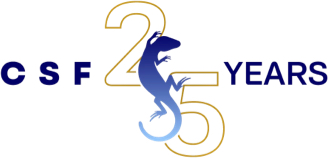The course covers the following subjects:
Microeconomics
The first module of our courses gives people a solid grasp of how markets work and how the dynamics of supply and demand apply to ecosystem goods and services. Public goods, market failure and externalities are covered, along with the impact of government interventions such as taxes and subsidies.
Valuation of ecosystem goods and services
The economic value of many ecosystem good and services can be calculated using well-accepted methods of environmental economics. The resulting figures are useful for driving understanding of ecosystems’ worth, and even more for planning and policy design. Participants learn the capabilities, costs and limits of these methods.
Environmental Economics
Why markets are inefficient when it comes to environmental protection.
How economists place monetary values on the environment, and how these methods are best used in developing countries. Identifying opportunities and barriers for payments for environmental services.
Fisheries economics and policies
The basic economic theory learned in the course’s first days enables participants to gain a rigorous understanding of the inevitability of overfishing in an unmanaged context, as well as the welfare maximizing benefits associated with limiting fishing effort below the maximum sustainable yield level. Efficiency and equity effects of alternative policy approaches are explained.
Cost-benefit analysis (CBA) of projects affecting the environment
This technique zooms in to the level of specific investment or management decisions, measuring the net economic benefits. Participants learn to calculate the net present value and internal rate of return of specific projects, plus perform sensitivity analysis and present results in language appropriate to their specific audience. Past CSF Cost Benefit Analyses include investment in local value-added fish processing and investment in MPA infrastructure
Conditions for successful local management of marine common pool resources
Local control of marine ecosystems has become a mantra in coastal conservation due to some notable successes. These arrangements are ideal from both efficiency and equity standpoints, but succeed or fail based on identifiable institutional, economic and cultural conditions, which will be detailed in this module.
Communicating and negotiating with economic information
Participants take the results of their quantitative exercises and present findings to simulated audiences, such as community members, politicians, development bankers and the media.
Instructors
Economic Tools for Ecosystem Conservation is taught by experts in environmental economics who also have extensive field experience and understand real-world conservation challenges. They are drawn from several leading academic and international institutions including Stanford University, Duke University, Wellesley College, and the World Bank. Additional instruction is delivered by CSF staff.
| Day | Session | Module |
| 1 | Morning | Welcome and Introduction |
| Afternoon | Microeconomics | |
| Evening | Exercises | |
| 2 | Morning | Microeconomics |
| Afternoon | Microeconomics | |
| Evening | Exercises | |
| 3 | Morning | Microeconomics |
| Afternoon | Microeconomics | |
| Evening | Reading | |
| 4 | Morning | Natural resource economics |
| Afternoon | Natural resource economics | |
| Evening | Exercises | |
| 5 | Morning | Natural resource economics |
| Afternoon | Natural resource economics | |
| Evening | Reading | |
| 6 | Morning | Natural resource management |
| Afternoon | Environmental policies | |
| Evening | Open | |
| 7 | Field Trip | |
| 8 | Morning | Environmental valuation |
| Afternoon | Environmental valuation | |
| Evening | Exercises | |
| 9 | Morning | Socio-economic analysis |
| Afternoon | Cost-benefit analysis | |
| Evening | Reading | |
| 10 | Morning | Cost-benefit analysis |
| Afternoon | Cost-benefit analysis | |
| Evening | Group work on case studies | |
| 11 | Morning | Cost-benefit analysis |
| Afternoon | Policy applications | |
| Evening | Open | |
| 12 | Morning | Marine conservation agreements |
| Afternoon | Applied analysis workshop | |
| Evening | Graduation | |
| 13 | Departure |

